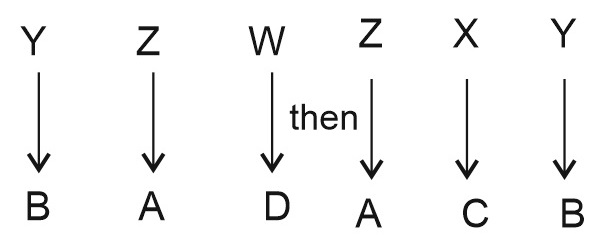Developing Critical Thinking Skills: Essential for Academic Analysis & Crafting a Powerful Academic Portfolio: Showcasing Your Skills and Achievements

In today’s competitive academic culture, just turning in coursework on time won’t cut it. Whether working on university essays, studying for exams, or creating an overall academic portfolio, the value of critical thinking and proper self-presentation cannot be undervalued. These skills are essential not only for academic achievement but also for long-term success in one’s career.
This article delves into two key academic pillars: acquiring critical thinking skills for academic analysis and creating a strong academic portfolio. Full of practical tips, the article will also briefly mention tools such as assignment help, writing assistance, and online assignment assistance platforms that aid student success.
Part 1: Acquiring Critical Thinking Skills: Critical for Academic Analysis
What Is Critical Thinking?
Critical thinking is the capacity to analyze, interpret, and judge information or arguments systematically and objectively. It helps students make informed decisions instead of taking information for granted.
Why Is Critical Thinking So Important in Academics?
- Improves analytical writing: Essential for essays, dissertations, and reports.
- Enhances academic performance: Assists in recognizing patterns, arguments, and fallacies.
- Facilitates independent learning: Stimulates questioning and investigation outside textbooks.
Key Elements of Critical Thinking
- Observation: Correctly observing and interpreting information or argument.
- Analysis: Dismantling difficult material into comprehensible parts.
- Evaluation: Validating credibility, logic, and relevance.
- Inference: Making logical conclusions from data provided.
- Explanation: Stating reasoning clearly.
- Self-regulation: Identifying and eliminating bias.
Strategies to Cultivate Critical Thinking
1.Ask Open-Ended Questions
Rather than memorizing facts, ask the “why” and “how.” This method ensures greater understanding.
2.Practice Analytical Reading
Active engagement with texts. Mark assumptions, find arguments, and contrast views.
3.Practice Reflective Writing
Maintain a journal of summarizing and analyzing readings or lectures. It aids in synthesizing knowledge.
4.Join Study Groups
Collaborative learning fosters the sharing of ideas, enhancing critical listening and reasoning.
5.Utilize Online Tools for Support
Websites providing assignment help, academic assignment assistance, and writing support usually offer guidance that enhances improved analysis and organisation.
Critical Thinking in Academic Writing
Good academic writing is not opinion—it’s evidence-based arguments. When arguing:
- Support each point with references.
- Acknowledge counter-arguments.
- Be objective and logically consistent.
Using Critical Thinking in Other Subjects
- Sciences: Test hypotheses, analyze data.
- Humanities: Interpret texts, analyze theories.
- Social Sciences: Compare methods, determine validity.
Part 2: Creating a Powerful Academic Portfolio: Demonstrating Your Skills and Achievements
What Is an Academic Portfolio?
An academic portfolio is a handpicked selection of a student’s academic work, skills, and achievements. It serves as a personal portfolio and is usually submitted for university application, internships, or work placements.
- proves academic improvement and learning.
- Emphasizes special skills and achievements.
- Proofs research, analysis, and writing skills.
- Increases credibility in competitive settings.
Elements of an Effective Academic Portfolio
1.Personal Statement
A brief overview of academic interests, objectives, and motivations.
2.Samples of Coursework
Add quality assignments demonstrating critical thinking, for example, essays, projects, or presentations.
3.Research Projects
Highlight independent or collaborative research featuring original analysis or results.
4.Extracurricular Activities
Volunteering, leadership, or competition activities demonstrate well-roundedness.
5.Certificates and References
Add academic references or certificates for workshops or courses.
Tips for Organising Your Portfolio
- Digital Format: Utilize Google Drive, PDF generators, or portfolio sites.
- Clear Structure: Employ headings, bullet points, and brief summaries.
- Consistency: Keep the formatting, font, and citation style consistent.
- Regular Updates: Continuously add new accomplishments and delete old information.
Utilizing Assignment Help Tools to Improve Your Portfolio
- Assignment assistance and custom writing services can offer:
- Assistance in professionally structuring written assignments.
- Support for proofreading, editing, and citation styles.
- Advice on locating strengths to showcase.
- These tools help present one’s scholarly work better.
Demonstrating Skills Outside the Classroom
Institutions and employers seek transferable skills like:
- Time Management: Completed deadlines and handled multiple tasks.
- Communication: Wrote well and communicated ideas well.
- Problem-Solving: Handled complicated assignments in a logical manner.
- Collaboration: Collaborated with others during group projects.
- Demonstrate these through reflections or supporting documents.
Mistakes to Avoid
- Overloading with unnecessary content.
- Concentrating on grades only and not growth.
- Poor organisation and lack of visual appeal.
- Disregard tutor or mentor feedback.
Embracing Critical Thinking in Your Academic Portfolio
To differentiate yourself, combine your critical thinking capabilities with portfolio design:
- Reflective Summaries: Include comments regarding what was accomplished through each assignment.
- Evidence of Analytical Work: Demonstrate how arguments were constructed or data were analyzed.
- Skill Tags: Tag submissions with skills employed—e.g., research, evaluation, synthesis.
Tools and Resources to Facilitate Academic Achievement
- Assignment Help and Writing Aid
- Students can gain from sites providing:
- Writing assistance for editing and citation aid.
- Assignment helper software that assists planning and research.
- Online assignment assistance for instant feedback or tutoring.
- Used responsibly, these tools improve comprehension and performance.
- Study Materials to Develop Critical Thinking
- Academic journals and peer-reviewed articles.
- Logic and reasoning online courses.
- University libraries and citation databases.
- These, when mixed with lecturers’ feedback, enhance overall critical thinking capacity.
Conclusion
In today’s world with so much information at hand, critical thinking skill and the power to effectively express accomplishment have never been more valuable. For academic and professional student success, possessing these skills is a must.
From working through tough texts to putting together an impressive academic portfolio, every step reinforces a student’s worth in academic environments and life. Websites that offer academic assignment support, bespoke writing, and writing guidance can be handy guideposts along the way.
For students who desire structured direction, Assignment in Need (assignnmentinneed.com) is an investment of time worth making for assignment and portfolio assistance.






